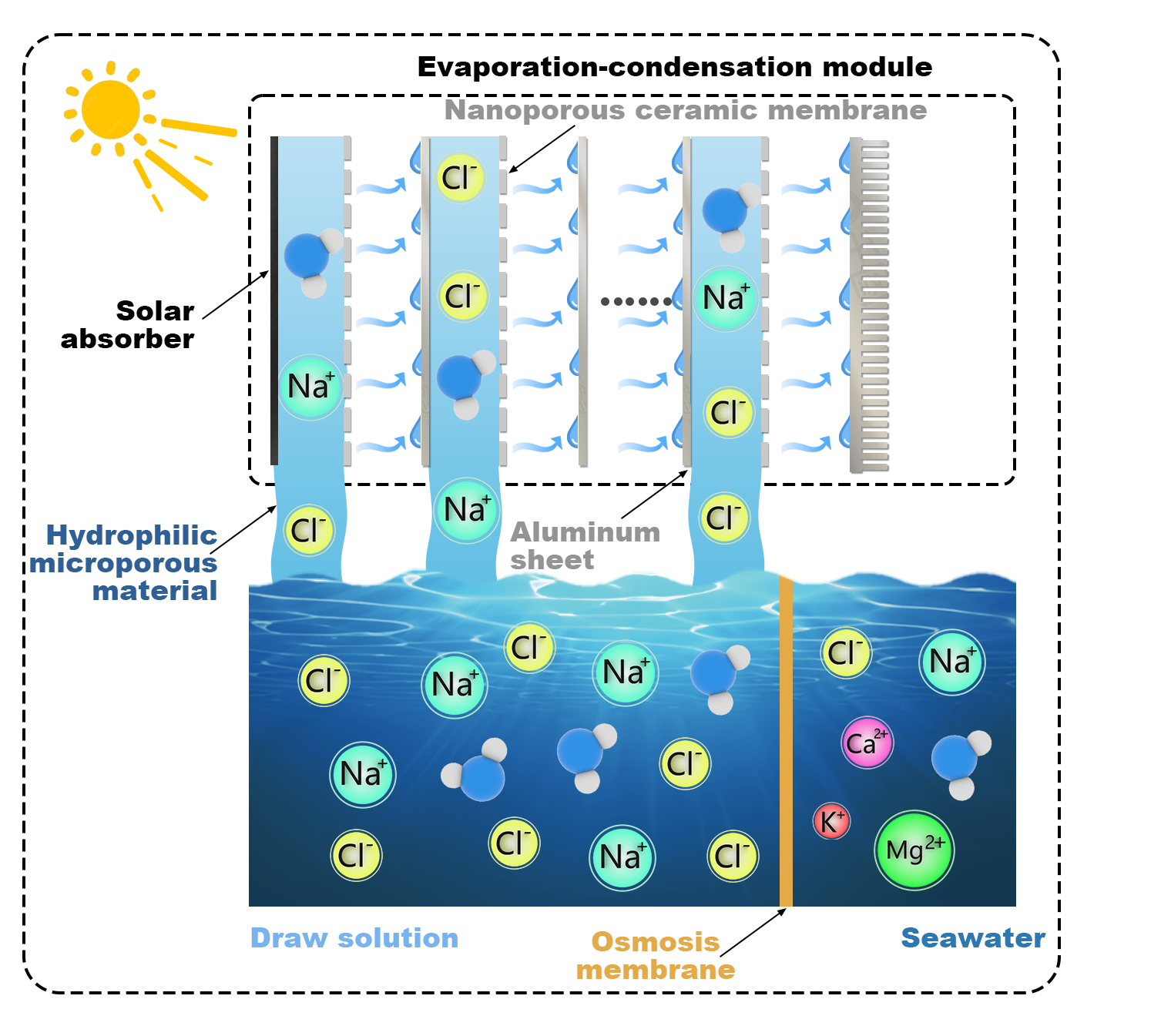Liang Yingzong

|
- 教授
- Supervisor of Doctorate Candidates
- Supervisor of Master's Candidates
- Name (English):Liang Yingzong
- Name (Pinyin):Liang Yingzong
- Date of Employment:2018-12-27
- School/Department:School of Materials and Energy
- Contact Information:yliang@gdut.edu.cn
- Professional Title:教授
- Status:On-the-job
- Alma Mater:The Hong Kong University of Science and Technology
- Teacher College:School of Materials and Energy
- Discipline:工程热物理
 Contact Information
Contact Information
- ZipCode:
- PostalAddress:
- Telephone:
- Email:
- Paper Publications
Bio-inspired solar-driven osmosis for stable-high flux desalination
Release time:2024-01-24 Hits:
- Impact Factor:11.4
- DOI number:10.1021/acs.est.3c08848
- Journal:Environmental Science & Technology
- Key Words:The growing global water crisis necessitates sustainable desalination solutions. Conventional desalination technologies predominantly confront environmental issues such as high emissions from fossil fuel-driven processes and challenges in managing brine disposal during the operational stages, emphasizing the need for renewable and environmentally friendly alternatives. This study introduces and assesses a bio-inspired, solar-driven osmosis desalination device emulating the natural processes of mangroves with effective contaminant rejection and notable productivity. The bio-inspired solar-driven osmosis (BISO) device, integrating osmosis membranes, microporous absorbent paper, and nanoporous ceramic membranes, was evaluated under different conditions. We conducted experiments in both controlled and outdoor settings, simulating seawater with a 3.5 wt% NaCl solution. With a water yield of 1.51 kg·m-2·h-1 under standard solar conditions (one sun), the BISO system maintained excellent salt removal and accumulation resistance after up to eight hours of experiments and demonstrated great cavitation resistance even at 58.14 °C. The outdoor test recorded a peak rate of 1.22 kg·m-2·h-1 and collected 16.5 mL in eight hours, showing its practical application potential. These results highlight the BISO device’s capability to address water scarcity using a sustainable approach, combining bio-inspired design with solar power, presenting a viable pathway in renewable-driven desalination technology.
- Co-author:Jianyong Chen,Zhi Yang,Jiacheng He,Ying Chen
- First Author:Zihao Zhu,Jianwei Xu
- Indexed by:Journal paper
- Correspondence Author:Yingzong Liang,Xianglong Luo
- Volume:58
- Issue:8
- Page Number:3800–3811
- Translation or Not:no
- Date of Publication:2024-02-13
- Included Journals:SCI
- Links to published journals:https://pubs.acs.org/doi/full/10.1021/acs.est.3c08848


